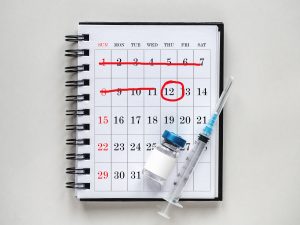Truck and HGV driver drug & alcohol testing
Ensure the safety of your fleet and other road users with tailored truck driver drug and alcohol testing.
500
commercial truck accidents happen each year due to alcohol intoxication [1].
Driving for a living involves working long, unsociable hours, operating heavy vehicles for long hours and working in all weather conditions, all of which can be challenging.
On top of this, substance abuse among truck & HGV drivers, crane operators, bin lorry drivers, aggregate lorries or council and municipal services can lead to impaired judgement, slower reaction times, and increased risk of accidents [2].
This can result in:
- Increased risk of accidents: Substance abuse can lead to damage to your organisation’s vehicles, cargo, and reputation as your drivers make the roads less safe [2].
- Decreased productivity: Illicit substance abuse can lead to absenteeism, poor performance, and decreased productivity, causing delays in delivery times, missed deadlines, and decreased client satisfaction [3].
-
Legal and financial consequences: Your organisation may face fines, legal fees, and compensation claims, ultimately losing business, if an employee is found to be abusing substances at work [4].
Whether you’re in HR management or fleet administration, using Racoo’s expertise in HGV driver drug and alcohol testing helps you address issues before they escalate.
Implement truck driver drug testing to ensure a safe and compliant driving environment

Promote safe roads
Random drug tests can deter HGV drivers from substance abuse, potentially reducing the risk of road incidents. Testing supports the wellbeing of your drivers and other road user

Maintain your company’s reputation
Regular screening can ensure your drivers are fit for duty, upholding your company’s reputation in the haulage sector.


Adhere to regulations
Our fully managed drug and alcohol testing service aligns with industry standards, ensuring you meet legal requirements without the hassle.
How can truck driver testing benefit your haulage company?
Truck & HGV drivers using public roads must follow the same laws as car drivers.
According to the UK government, it’s illegal for your drivers to be behind the wheel if [5]:
- They’re unfit to do so because they’re on legal or illegal drugs
- They have certain levels of illegal drugs in their blood (even if they don’t affect their driving)
- They’re taking legal drugs, including prescription medications, that impair driving. These include:
- amphetamine, for example, dexamphetamine or selegiline
- clonazepam
- diazepam
- flunitrazepam
- lorazepam
- methadone
- morphine or opiate and opioid-based drugs, for example, codeine, tramadol or fentanyl
- oxazepam
- Temazepam
If convicted of drug driving, drivers may face a minimum 1-year driving ban, an unlimited fine, up to 6 months in prison, and a criminal record [REF5], which can harm their future career prospects and your organisation’s staffing levels.
Fully managed service: Let us handle the testing procedures, so you can focus on core operations.
Customised to your needs: We offer solutions tailored to the unique challenges of the logistics sector.
Legal and ethical testing: Ensure health and safety at work while adhering to data protection and other legal standards.
Why Racoo?
FAQs
About drug testing in the haulage sector
Yes, HGV drivers in the UK can be subjected to drug testing [6]. Employers often conduct these tests to ensure the safety of their drivers and other road users. The police have the authority to conduct roadside drug tests on any driver, including HGV drivers, if they suspect drug use.
The frequency of drug testing for HGV drivers varies depending on your organisation’s policy and the specific circumstances. Some employers may conduct random drug tests periodically, while others might test based on suspicion, post-accident, or as part of routine medical checks. When applying for or renewing an HGV licence (once every 5 years if you’re over 65 [7]), drivers undergo a medical exam which may include checks for signs of drug or alcohol misuse.
Who could be drug and alcohol tested?
Any driver operating a vehicle either at work or in public space could be drug and alcohol tested. This includes people like:
- Truck & HGV drivers
- Crane operators
- Waste disposal drivers
- Council contractors (For example, Bristol council has strict drug & alcohol policies)
- Aggregate lorries
Many employers opt for random drug tests or post-accident testing. Since 2015, police use “drugalysers” for roadside checks [8]. If suspicions arise, further tests at the police station using blood or urine can be conducted. We recommend hair strand testing for employers. It’s highly accurate, detects a wide range of substances, and can identify drug and alcohol use from the past seven days to six months.
The frequency of testing depends on company policy and risk assessment. Regular, unannounced tests can act as a deterrent.
Testing a significant percentage, if not all, drivers ensures fairness and thoroughness.
During the HGV licence medical exam, doctors look for signs of drug or alcohol misuse. Licences may be refused if applicants don’t meet the medical guidelines for alcohol or drug misuse in the past year or dependence in the last three years.
A driver testing positive should be suspended immediately and not return to work until due process has been completed. The return to duty process involves counselling, further testing, and a comprehensive review to ensure the driver is fit for the road [9].
A positive test or an accident due to substance misuse can lead to increased insurance premiums, potential legal liabilities, and reputational damage for the company. It’s crucial to have clear policies and procedures in place to manage such situations.
Yes, pre-employment screening is a proactive step to ensure new hires meet the company’s safety standards. It’s essential to inform candidates about this requirement during the recruitment process.
Regular training sessions, workshops, and awareness campaigns can be conducted. Providing resources, helplines, and support can also help drivers understand the risks and importance of staying substance-free.
Regularly review local government regulations and consult with legal experts to ensure your policies are compliant. Engage with industry bodies and associations for guidance and best practices.
Drivers can access NHS services, local addiction centres, and helplines like FRANK where they can talk to substance abuse professionals. The council can facilitate by providing information, hosting awareness sessions, and partnering with local rehabilitation centres for direct referrals.
references
[1] www.consortiumpool.com What Commercial Truck Drivers Should Know About Alcohol
[2] www.edition.cnn.com More than half of people involved in road accidents had drugs or alcohol in their system, study says
[3] www.americanaddictioncenters.org The Effects of Substance Abuse in the Workplace
[4] www.unison.org.uk Alcohol, drugs and substance abuse
[5] www.gov.uk Drugs and driving: the law
[6] www.drivertrainingcentre.co.uk HGV Drivers Drugs & Driving: The Law
[7] www.safedrivingforlife.info Driver and Vehicle Standards Agency: Drivers’ hours rules
[8] www.motoringdefencesolicitors.co.uk Drugalysers Police Roadside Drug Testing Kits
[9] www.csa.fmcsa.dot.gov Return-to-Duty Process and Testing (Under Direct Observation)





